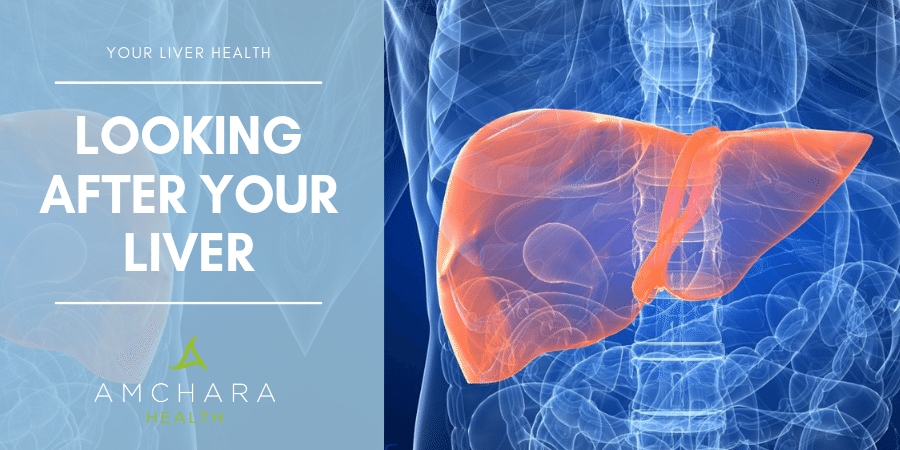Topics Covered in this article:
Your liver performs hundreds of tasks in the body every day, which are imperative for maintaining good health.
It is important to take care of your liver to help you live a long and healthy life.
We always take an evidence-based approach, in this article, we will look at some amazing facts about the liver, as well as what nutrients and foods are vital to support its optimal functioning.
Liver facts: did you know?
- The liver is the largest single organ in the body, weighing about 1.4kg or 3lb.
- It is located in the upper right section of the abdomen, hidden and protected under the lower part of the rib cage.
- The liver has a remarkable ability to regenerate itself, and is able to grow back much of its tissue if it has been removed or damaged.
- The liver’s two lobes are lined with specialised cells known as Kupfer cells, which ingest and breakdown toxic substances.
- Every system in the body relies on a healthy liver and could be adversely affected if it is not functioning well.
- Approximately 1.4 litres of your blood are filtered by the liver every minute.
- The liver uses vitamin K to produce proteins that are important for blood clotting. (1)
- The liver carries out over 500 complex functions which include:
- Filtration
- Detoxification
- Acting as a blood reservoir
- Breaking down dead red blood cells
- Producing bile, which aids digestion
- Lipid and cholesterol metabolism
- Fat metabolism
- Protein and amino acid metabolism
- Storing carbohydrate in the form of glycogen
- Converting glycogen back to glucose to replenish blood sugar levels
- Vitamin and mineral storage
- Activating vitamin D
- Nutrient conversion and metabolism
- Immune system support
- Contributing to production of hormones such as insulin and angiotensin
Nutrients to support the liver
The liver is a dynamic, organ that is under highly regulated physiological control.
The liver’s ability to function and rebuild and repair itself is absolutely dependent on the nutrients you consume.
To carry out these processes effectively the liver relies on good sources of protein that provide a range of amino acids – vital for enabling the liver’s detoxification pathways.
Variety is key so mix up your meals with a good balance of fish, nuts, seeds, poultry, beans, quinoa, lentils, pulses, eggs and lean meat.
The liver also needs a range of cofactors to function at its best and the following nutrients are of particular importance:
Vitamin C
Vitamin C accelerates the liver’s ability to detoxify and promotes the transformation of cholesterol into bile acids (3), which aid digestion.
Vitamin C is a well known antioxidant and is vital for neutralising many harmful agents and helping the body to remove heavy metals.
These are found in cigarette smoke, which may explain why vitamin C is used up so rapidly in smokers.
This powerful antioxidant also inhibits the damaging effects of air pollutants, pesticides and carbon monoxide.
These are vital cofactors for the action of the enzyme systems in the liver.
A good supply of B vitamins helps to protect the liver from the damaging effects of alcohol. (2)
Vitamin B3 and B5 also play an important role by helping the liver to metabolise cholesterol effectively.
Research suggests that a deficiency in B vitamins affects the metabolism of fatty acids and may lead to cholesterol accumulation in the liver and arteries. (4)
This is one of the most important nutrients for prevention of fat accumulation in the liver.
It acts as a cofactor in the liver detoxification pathways and can also be converted to cysteine to make glutathione, a powerful antioxidant.
Human studies indicate that methionine may be effective in reducing the damaging effects of alcohol. (5)
This is a precursor to glutathione and can support the liver’s antioxidant defences as well as supporting the detoxification pathways.
Glutamine also plays a part in metabolising protein in the liver and helps to protect the liver cells from the toxic by-products of protein metabolism.
Milk thistle has been used as a traditional herbal remedy for liver disease for hundreds of years.
It is thought to have antioxidant properties that help to protect the liver from the damaging effects of toxic substances it has to detoxify.
Foods to feed your liver
The basis of any good liver support plan is a daily supply of nutrient rich and fibre dense foods.
The diet should also be low in toxins and other foods that may present extra work for the liver.
As well as supporting overall liver detoxification, foods can be used to help protect the liver and keep mechanisms within the liver balanced.
Fruits and vegetables are a good source of antioxidants, which are needed to protect your liver.
Choosing organic produce reduces your liver’s exposure to additional toxic substances.
The following foods are known for their specific liver supporting properties.
Aim to include three to six portions of these in your daily meal plan:
- Alfalfa sprouts
- Brassica vegetables
- Beetroot
- Asparagus
- Chicory
- Dandelion leaves
- Fennel
- Sesame seeds
- Spinach
- Tomatoes
- Red grapes
- Dark berries
- Lemons
- Garlic and onions
- Turmeric
- Ginger
- Rosemary
- Oregano
- Green Tea
Take home
It may take up to three months to effectively cleanse the liver, however in order to maintain long-term health, it is always good to include plenty of liver supportive foods in your overall eating plan.
During a detoxification programme you may need greater amounts of the above mentioned nutrients and diet alone may not be sufficient.
Supplementing with appropriate nutrients can provide the support your liver requires to function optimally, but these should be tailored to suit your own specific needs.
A qualified nutritional therapist or naturopath can help you to plan a liver supportive menu and determine which supplements might benefit you as an individual.
For more personalised advice from an Amchara health practitioner why not take advantage of a complimentary consultation.
Just click on the following link:
We hope you enjoyed this article.
Do you have any other suggestions that have helped you support your liver’s health?
We’d love to hear from you.
READ THIS NEXT:




